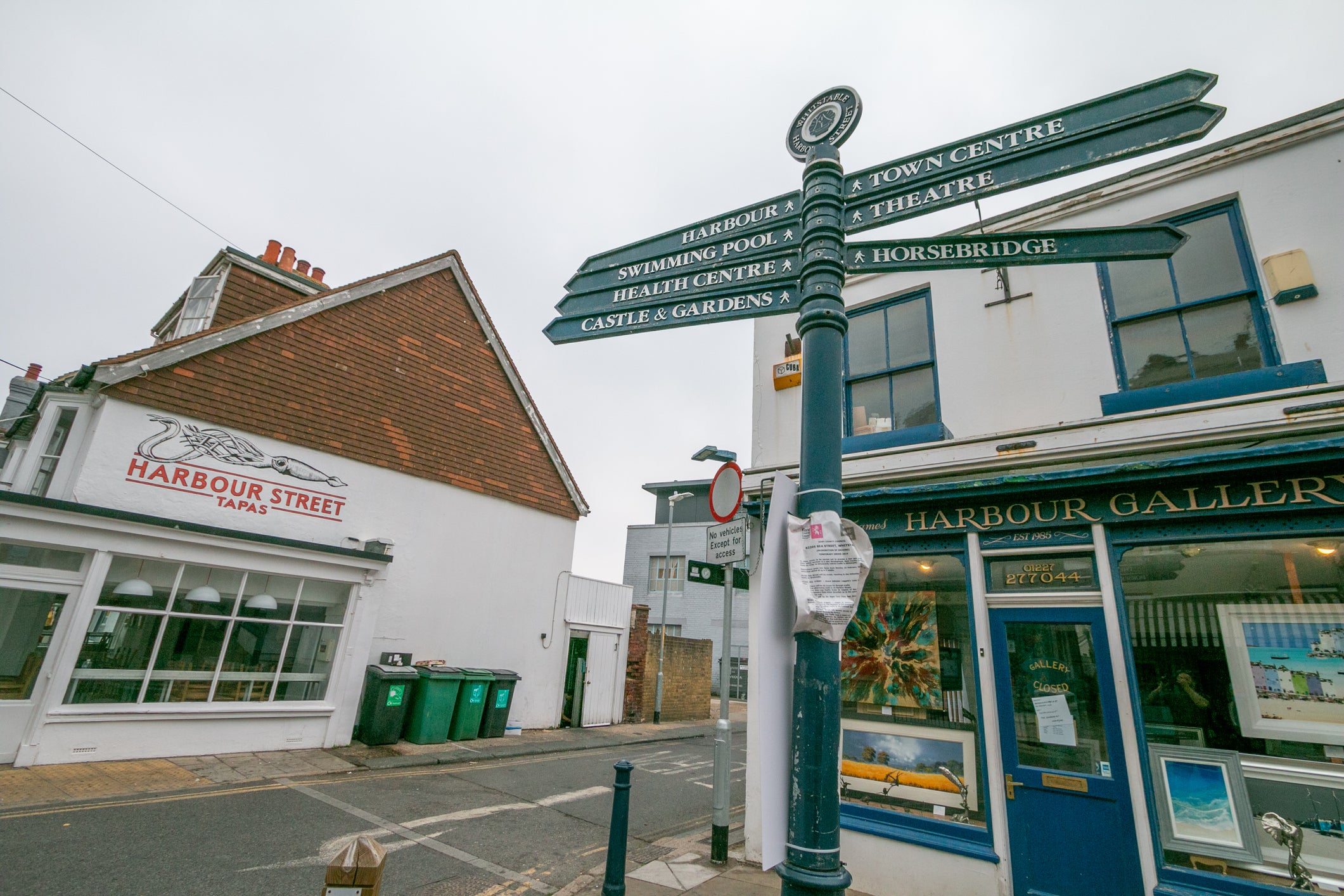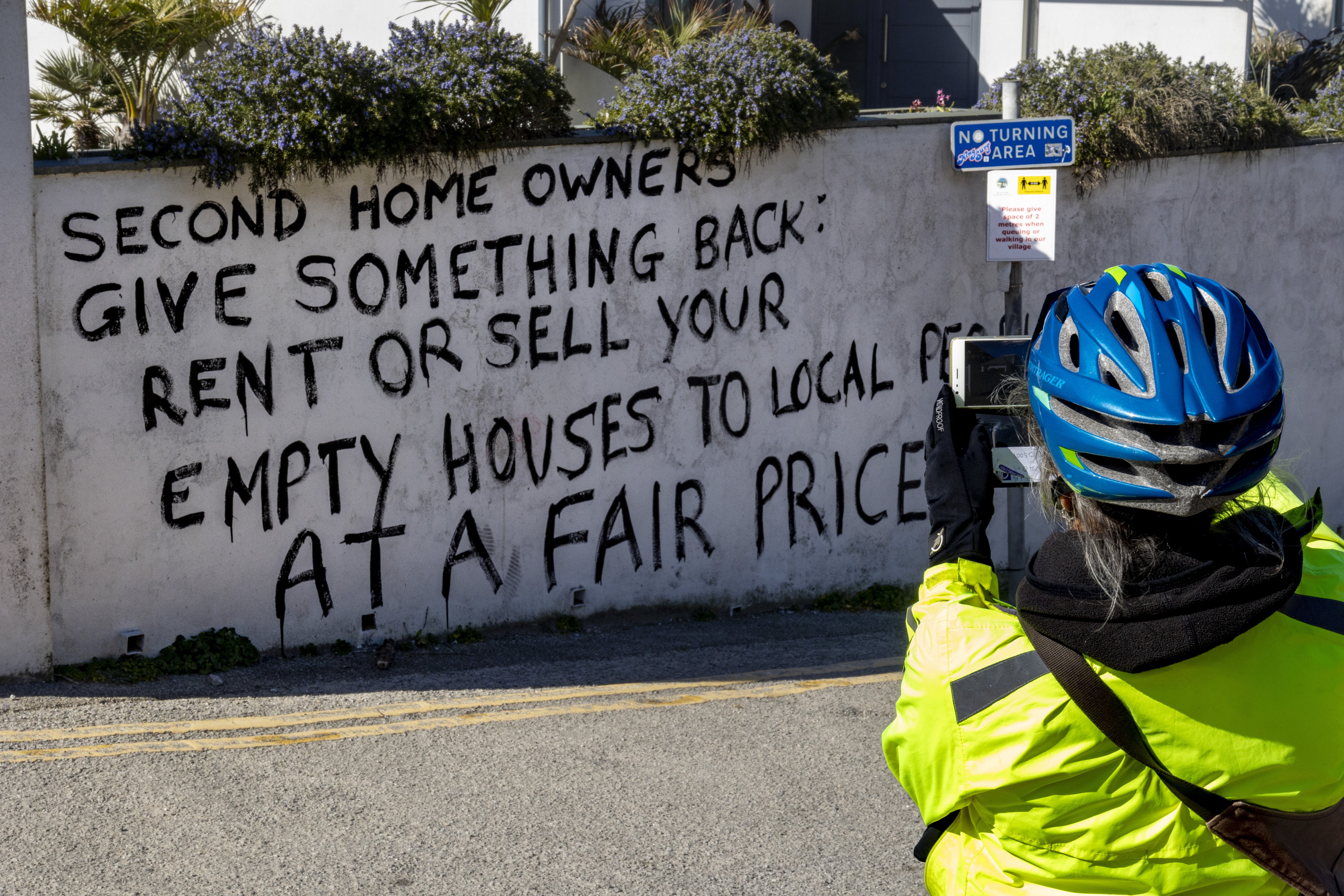‘It’s cancerous’: How seaside towns fight back against second home owners
‘Local councils should be able to say no more holiday lets’ says one campaigner – Tom Mulvihill looks at how communities are fighting back against the threat of holiday rentals

Your support helps us to tell the story
From reproductive rights to climate change to Big Tech, The Independent is on the ground when the story is developing. Whether it's investigating the financials of Elon Musk's pro-Trump PAC or producing our latest documentary, 'The A Word', which shines a light on the American women fighting for reproductive rights, we know how important it is to parse out the facts from the messaging.
At such a critical moment in US history, we need reporters on the ground. Your donation allows us to keep sending journalists to speak to both sides of the story.
The Independent is trusted by Americans across the entire political spectrum. And unlike many other quality news outlets, we choose not to lock Americans out of our reporting and analysis with paywalls. We believe quality journalism should be available to everyone, paid for by those who can afford it.
Your support makes all the difference.In May this year, residents of Whitstable gathered to discuss a growing crisis – the slow death of their community at the hands of tourists, with the blame laid firmly on the growth of second homes and holiday lets.
Locals listed numerous problems caused by a proliferation of short-term rentals in recent years, from poor parking and litter to all-night parties. The seaside town on Kent’s northern coast has also seen a steady decline in year-round inhabitants, which has left the town feeling “hollowed out”, they said.
It’s a familiar story for anyone living in one of the UK’s holiday hotspots. Around the coast, and in popular tourist destinations such as the Cotswolds, the Lake District, and parts of Wales, resentment has been brewing for some time.
Locals are increasingly being driven out by soaring house prices, and the effect has been devastating, both for those forced out and for those left behind.
Janet Pearson lives in Newlyn, a working fishing port in West Cornwall that has become increasingly popular with holidaymakers in recent years. The road she lives on, a quiet terrace of small fishermen’s cottages, is perfect for the Airbnb market.
One by one, the houses are being sold to investors and let out for a week or two at a time.
“It’s cancerous in the way it’s spreading,” she said. “When I first moved here 10 years ago, every house on my road was lived in, with several families and quite a few children. During lockdown, two houses became holiday lets, then more.
“It’s sad in the winter. When I pull my curtains at night and look out, the houses opposite are just dead. There’s no light in them at all. It makes me feel very isolated.”
Just 10 miles away, the honeypot resort of St Ives has been grappling with the pressures of overtourism for decades. In 2016, the town became one of the first in the country to try to legislate against the tide, voting through Policy H2, which stipulates that newly built homes can only be sold as a “principal residence”.

Other places have followed suit: the Cornish towns of Fowey and Mevagissey, as well as Brighton, Whitby, Scarborough and parts of Norfolk.
Few want to drive the holidaymakers out completely; many of the UK’s more remote regions are almost entirely reliant on tourism to drive their economies. But the prevailing mood is that a balance needs to be struck, and soon.
Janet Jefferson, an independent councillor representing Scarborough’s Castle ward, is one of those pushing for there to be greater consideration for local interests.
“In some areas there might only be two or three people living in a road permanently. It also reduces the number of properties that are left for ordinary families,” she said.
“A lot of landlords are issuing Section 21 notices, so people are having to vacate properties they might have lived in for two decades so it can be let out for holidays. It’s then very difficult for them to find something to rent.
It’s cancerous in the way it’s spreading
“I’m not decrying people who want to come on holiday – there’s nothing wrong with that. But you lose the community. In Whitby, Robin Hood’s Bay, places like that, the young people can’t afford to buy anything because they get snapped up by investors.”
The problem with mechanisms such as Policy H2 is that they simply don’t get to the root of the issue.

While it’s evidently a good thing that new-build developments are preserved for those who live and work in the area, most investors in holiday lets are after the more historic and atmospheric homes – the ones that usually make up the heart of any town. But for now, it’s pretty much the only tool local authorities possess.
The government has promised help through the Levelling Up Bill, currently making its way through parliament. This will allow local councils to double the rate of council tax payable on second homes, as has been the case in Wales since 2017. Whitby and Scarborough have already voted to adopt these measures as soon as they are passed into law.
The Telegraph report one in four councils in England have pre-emptively agreed to double the levy. More than 100,000 second-home owners are set to see bills rise.
But critics are sceptical as to how much of an effect this will have on the community crisis.
The Welsh government has now raised rates again, with a premium of 300 per cent, but the policies have little to no impact on holiday-let owners, who are subject to business rates instead (and for the most part are able to claim 100 per cent relief as small businesses).
Campaigners are more optimistic regarding the latest proposal from Michael Gove, the minister for levelling up, housing and communities, who last month announced a new policy that would require property owners to apply for planning permission in order to convert homes into holiday lets.
“I think it’s a good idea,” says Cath Navin, one of the founders of Cornwall-based organisation First Not Second Homes. “Local councils should be able to say ‘No more holiday lets.’ It will deter people from investing in property purely as a cash cow.
“But it’s something that’s only going to be fully functional as part of a raft of measures, including returning other houses to long-term letting.”



Join our commenting forum
Join thought-provoking conversations, follow other Independent readers and see their replies
Comments